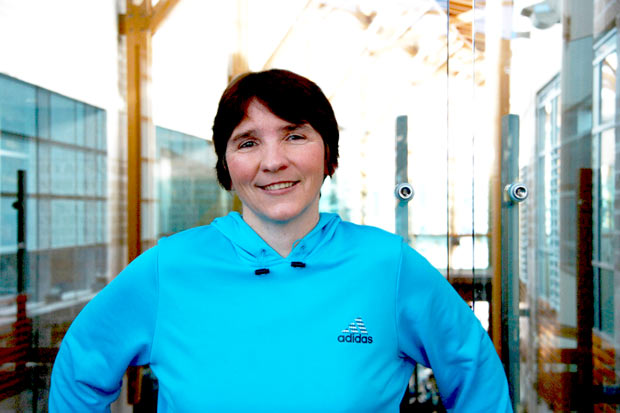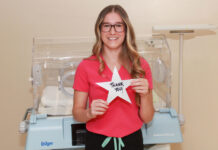

THUNDER BAY – Health – Fifteen years ago Linda Stewardson was a self-described “drunk and junkie”. “Most people would brush me off as an addict,” she says.
Stewardson shared her story of addictions, stigma and recovery with staff at Thunder Bay Regional Health Sciences Centre (TBRHSC) in one of a series of presentations facilitated in partnership with St. Joseph’s Care Group. The presentations were designed to help educate and reduce stigma in order to deliver safe, high-quality healthcare for patients and families living with the effects of substance use.
Overcoming addiction and depression
Staff from St. Joseph’s Care Group, including Addictions Counselors, Certified Trauma Therapists, a Concurrent Disorder Specialist. and the manager of Crisis and Outreach Service, are providing a seven-session educational series on substance abuse for all TBRHSC staff, with some specialized training for clinical and nursing staff.
The sessions explore attitudes, beliefs and myths regarding substance use; the role of patient and family centered care in support of recovery from addictions; the relationship between trauma and substance use; the neurobiology of addictions; Motivational Interviewing; the recovery process with respect to addictions and the range of resources available within the community, as well as strategies to identify and address compassion fatigue among care providers.
The complexity of patients’ needs and related health and safety risks associated with substance use prompted TBRHSC to identify mental health and addictions as a strategic priority for the organization.
The oldest of six children, growing up near North Bay, Stewardson was physically, sexually and emotionally abused. She began drinking alcohol at the age of 8 and made her first suicide attempt at the age of14. Over the next 15 years, she made about another 50 suicide attempts and was hospitalized hundreds of times.
Stewardson says although many nurses and physicians did take time to sit with her and show they cared, their words didn’t have an immediate impact. “When I was ready, those things came back to me that doctors and nurses had told me years before.”
She still remembers the name of one particular nurse who reassured a teenage Stewardson that she would get better one day, go to prom, fall in love and get married. “I can guarantee that nurse has no idea what an impact she had.”
When a doctor told her that recovery was possible only if she were ready and willing, Stewardson took him up on the offer and began her recovery journey.
Stewardson has been addiction-free and hasn’t attempted suicide for 12 years. She is married and the mother of two boys. An active advocate and volunteer in the area of suicide prevention and depression, she received the 2004 Courage to Come Back Award from the Center for Addiction and Mental Health Foundation.
Yvonne Harris, RPN, has worked with patients living with mental health issues and addictions since 1982, most recently as a Transitional Case Manager with outpatients of the Forensic Mental Health unit at TBRHSC. She says she has witnessed the stigma that some patients like Stewardson face. “We have a long way to go,” says Harris. “Everyone, including healthcare providers, should be nonjudgmental. There is always a story behind each person. We need to humanize people with addictions and always have hope, even if they’re at rock bottom when they come through our doors.”
To read more about Linda Stewardson’s recovery journey, visit www.withanopenmind.com






